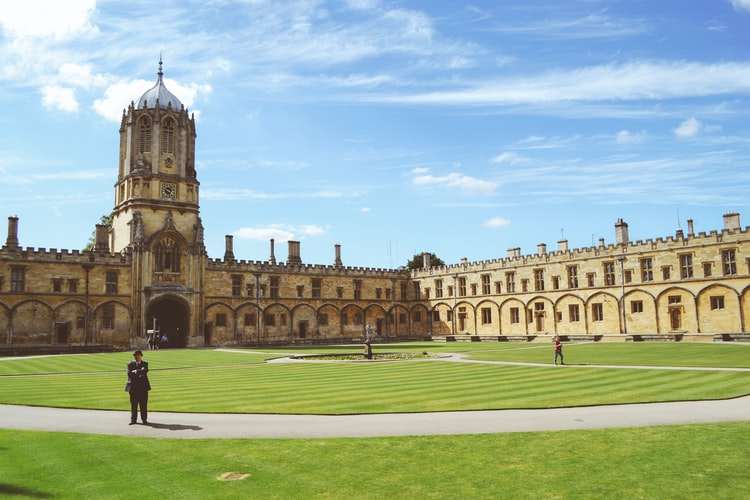
One of the toughest questions that students face after finishing high school is – “what next?” Choosing a college or a university that gets you a good job isn’t enough anymore.
This new phase of life is also expected to teach you about survival skills and becoming successful in all spheres of life.
No wonder this is an important decision! Your higher education can define the person you become. The right qualifications from a reputed institute can set you up for life the way nothing else can.

I’m sure you must have definitely found yourself wondering about the similarities and differences between a college and a university several times. Many students have doubts and queries about what makes a college a college, and a university a university. As trivial as this question sounds, it is important to get it answered as your future rides on it.
Also Read -> What To Do After College?
To the layman, a university sounds much more coveted and prestigious as compared to a college or a community college that offers certificate courses.
There are, however, many more factors to be taken into account before we can decipher the differences and similarities between a college and a university in the India, UK, US & Canada.
Foremost Difference Between A College and A University
A college offers only a single and specialized line of Study. A University, on the other hand, holds a collection of colleges and hence offers various courses. Colleges within university offer undergraduate degrees, while the university itself offers graduate degrees.
For example, a student who attends Harvard gets his undergraduate degree from Harvard College and the graduate degree from Harvard University. Michigan State University is home to College of Business, College of Arts and Letters, College of Social Science, and many others.
Also Read -> How To Choose A Right University?
College vs University: What’s The Other Differences?
Some of the other 5 differences that might help you distinguish between the two are College and University.
You need to have a Bachelor’s degree to get into a university.
To apply for a Master’s or a PhD program at a university, you will first need to earn a Bachelor’s degree.
It is only once you become a graduate that you can apply to post-graduate/professional courses. You therefore need to be equipped with college education to be able to progress on to university education.
Colleges are smaller than universities.
When it comes to classroom and campus sizes, a college tends to be much smaller than a university. This is because colleges put a limit on the number of students they accept in order to enable the faculty to provide more focus and attention to the academic needs of the students.
This is necessary to prepare students for the next level of studies as that would determine how the rest of their life turns out.
Teaching methodologies are more independent in universities.
Universities are larger in size as well as hold a greater student density compared to colleges. Since the number of students is higher, it is not possible for the faculty to give them individualized attention.
Most of the lessons and faculty time are divided between teaching and research. That requires you to be in charge of your studies, which means you are totally responsible for your education.
Big universities may have several colleges under them.
A university might have several colleges that offer Bachelor courses. These courses take about 2 to 3 years to complete, post which the student can qualify to continue in the same university to pursue higher education.
Sports enthusiasts belong in universities.
Typically, it is the universities that are able to cater to the needs of sports fans and athletes since they tend to have several health and athletic programs with the resources and sponsorships to support major teams.
Since Ivy have bigger campuses, sportspersons can expect to be provided with high quality support infrastructure, equipment and training sessions.
Similarities Between Colleges and Universities
A few similarities between colleges and universities given below.
The same type of Bachelor’s degree can be conferred by colleges and universities.
Students pursuing undergraduate courses have it easier than those pursuing graduate studies. Although many factors affect the level and quality of education in an institute, the same graduate degree that is earned at colleges, can be earned at universities also. In such cases, it is through the colleges run by universities.
Highly reputed colleges are more selective than most universities.
It’s not just accomplished universities that pick and choose their students; some of the reputed colleges do so too. This is necessary for such colleges because they need to maintain a certain level of quality not just in the education they provide but also in the kind of minds they attract.
Many a time, these terms are used interchangeably.
In the US, “going to college” can imply both attending a college or a university. For a lot of people, the size of the campus and the number of students are the biggest factors differentiating the two. However, not the size but the programs and the curriculum offered should be the chief determinants
The Bottom Line
The dividing line between colleges and universities has blurred greatly in the Unites States. Ultimately, it is your responsibility to choose what’s best for you and your career goals.
Finding an institute that offers the kind of program you’re looking for is crucial to your development, so compromising on that front would be a big mistake. As long as the institute empowers your dreams, there is no need to worry about the rest.
Thank you for reading Differences and Similarities between a College and a University. Further if you still confuse about college and university, then do comment below, our team will try best.


